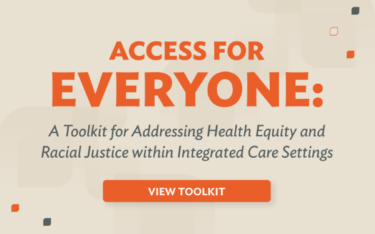Embracing Equity and Cultural Humility to Improve Care for Youth with Trauma

Data from the 2019 National Survey of Children’s Health shows 21% of children in the United States have experienced at least one adverse childhood experience (ACE); it has also shown that certain racial and ethnic groups have an increased prevalence of ACEs. For example, 27% of Black children and 23% of Hispanic children have experienced at least one ACE. Additionally, LGBTQ+ and neurodivergent youth are at higher risk of experiencing ACEs.Clinicians and school-based health providers can address ACEs during care by incorporating cultural and racial equity into trauma-informed care, and considering how broader cultural, political and societal factors affect trauma in youth.
This resource provides considerations, practical recommendations, case studies and self-care approaches for youth-serving primary care and mental health professionals to ensure providers are well equipped to enhance quality of care, improve patient outcomes and reduce clinician burnout.
This report was supported by the National Council for Mental Wellbeing’s Center of Excellence for Integrated Health Solutions and funded by a grant award from the Substance Abuse and Mental Health Services Administration and managed by the National Council for Mental Wellbeing. The views, opinions and content expressed in this presentation do not necessarily reflect the views, opinions or policies of the Center for Mental Health Services, the Substance Abuse and Mental Health Services Administration or the U.S. Department of Health and Human Services.


